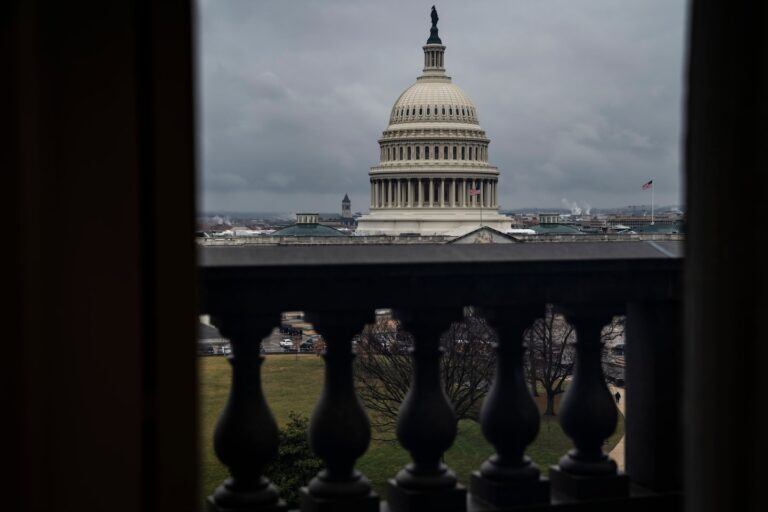Members of Congress, the president and vice president also have to divest from certain investments by 2027.
If lawmakers violate the new rules, they will be fined the equivalent of their monthly salary or 10 percent of the amount of the fraudulent investment.
The Homeland Security and Governmental Affairs Committee is scheduled to vote on July 24 to advance the bill to the full Senate, committee Chairman Peters announced Wednesday.
“I believe the American people should trust that our federally elected officials are making decisions that are in the best interest of the American people and not decisions that benefit their personal wealth or financial decisions,” Peters said.
Get caught up in
Stories to keep you up to date
Lawmakers are already prohibited from using information from classified briefings to make investments, and they must disclose any stocks they buy or sell, but the fine for such a violation is only $200 — a tiny fraction of the $174,000 salaries that most lawmakers receive.
Lawmakers have also been very active in the stock market, with investment products being launched that allow ordinary investors to mimic their trades.
Under Wednesday’s bill, lawmakers would still be able to invest in mutual funds and pooled securities investments such as exchange-traded funds, also known as ETFs.
“Government officials have increasing access to highly sensitive, nonpublic information. It’s important to mitigate those conflicts of interest, but that shouldn’t prevent them from investing in the market,” said Virginia Cantor, chief ethics counsel at Citizens for Responsibility and Ethics, a government watchdog group in Washington.
Previous bipartisan efforts to ban or restrict stock trading in Congress have failed. In 2022, then-House Speaker Nancy Pelosi (D-Calif.) recused herself from a vote on the bill, citing a lack of votes to pass it. But Pelosi herself opposes the bill, and her husband, Paul Pelosi, is a highly successful investor.
“We are a free market economy,” Pelosi said in 2022. “They [members of Congress] You should be able to participate in that.”
The former chair has long maintained that she does not personally own any shares and has no knowledge or involvement in her husband’s investments.
“Let me be very clear,” Hawley told reporters Wednesday, “there are a lot of members of Congress who don’t want to ban stock trading.”
Lawmakers who have come under scrutiny over stock trading in recent years have not faced significant punishment.
Rep. Pat Fallon (R-Texas) paid $600 in late filing fees and corrected his records after failing to timely disclose 122 transactions worth between $9 million and $21 million in 2021, but did not cooperate with an investigation conducted by the Office of Congressional Ethics.
The Senate Select Committee on Ethics has not taken disciplinary action against a senator in more than 15 years, even after a stock-trading scandal rocked the Senate. Then-Senators Richard Burr (North Carolina), Dianne Feinstein (D-Calif.), James M. Inhofe (R-Okla.), and Kelly Loeffler (R-Ga.) were investigated for selling large stock holdings ahead of the coronavirus-induced market crash in early 2020. Neither the Senate Ethics Committee nor the Department of Justice, which opened an investigation into the stock sales, pursued any charges.
“The Department of Justice’s clear exoneration supports Senator Loeffler’s assertion all along that she did nothing wrong,” a spokesman for Loeffler said at the investigation’s conclusion, adding that “she and her husband acted entirely appropriately and followed both the letter and spirit of the law.”
The bill’s sponsor said Wednesday he expects Senate Majority Leader Charles E. Schumer, Democrat of New York, to bring the bill to a floor vote within the next few months. Leaders of the Republican-controlled House of Representatives have also expressed interest in a stock trading ban.
But the bill could face a bigger hurdle in the Senate, where it would need 60 votes to overcome a potential filibuster. Hawley said he’s confident other Republicans would support the measure.
“Many of my Republican colleagues ran in 2018, 2020 and 2022 on a stock trading ban. It was part of their campaigns. They said and promised to do it,” Hawley said. “I expect, anticipate and hope that there will be some Republicans who will support this. I think it’s hard to explain otherwise.”

